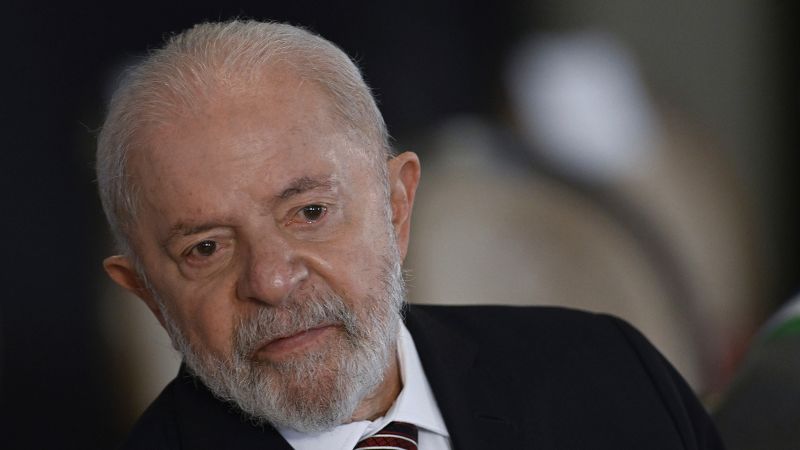Brazilian President Lula da Silva criticized billionaire Elon Musk’s “far-right anything goes” agenda in an interview, following the suspension of Musk’s social media site X in Brazil. Lula da Silva believes that the world is not obligated to tolerate Musk’s extreme views solely because of his wealth. Musk’s acquisition of Twitter and subsequent rebranding as X has faced challenges in Brazil, a key market where 40 million people access the platform monthly.
The conflict between Lula da Silva and Musk stems from disagreements over free speech, far-right accounts, and misinformation in Brazil. The suspension of X in the country was ordered by the Supreme Court due to Musk’s refusal to name a legal representative within Brazil. This action was part of a broader investigation into online misinformation and hate speech aimed at undermining democracy. The court has previously shut down accounts on X affiliated with right-wing politicians and activists accused of threatening Brazilian democracy.
Despite accusations of censorship, Musk has defended himself as a “free speech absolutist.” He has shown support for Brazilian political right movements by sharing links on X to demonstrations against judicial overreach and in defense of free speech. The loss of X in Brazil has significantly impacted Musk’s platform, causing the loss of advertisers and access to a large portion of the population. Lula da Silva’s comments reflect a broader concern about the influence of individuals like Musk, who use their wealth to promote controversial and divisive ideologies.
The Brazilian court’s actions against X are part of a larger effort to combat misinformation and hate speech on social media platforms. With Brazil being a key market for platforms like X, the government is taking steps to hold tech companies accountable for their content and actions. Musk’s clash with Brazilian authorities highlights the challenges faced by tech giants operating in diverse global markets, where cultural and political differences can lead to conflicts over free speech and democracy.
In the ongoing feud between Lula da Silva and Musk, the issue of balancing free speech with accountability for harmful content is a central point of contention. The suspension of X in Brazil raises questions about the role of tech companies in shaping public discourse and the responsibility they have to prevent the spread of misinformation. As Musk continues to defend his platform as a bastion of free speech, critics argue that his refusal to comply with legal requirements may have broader implications for democracy and governance in Brazil.
The clash between Lula da Silva and Musk highlights the complex interplay between wealth, power, and influence in the digital age. As tech giants like Musk navigate global markets, they must consider the social and political implications of their actions. The suspension of X in Brazil serves as a reminder of the challenges faced by social media platforms in balancing free expression with the need to protect democracy and public discourse. In the ongoing debate over online censorship and misinformation, the actions of individuals like Musk are being scrutinized for their potential impact on society at large.













